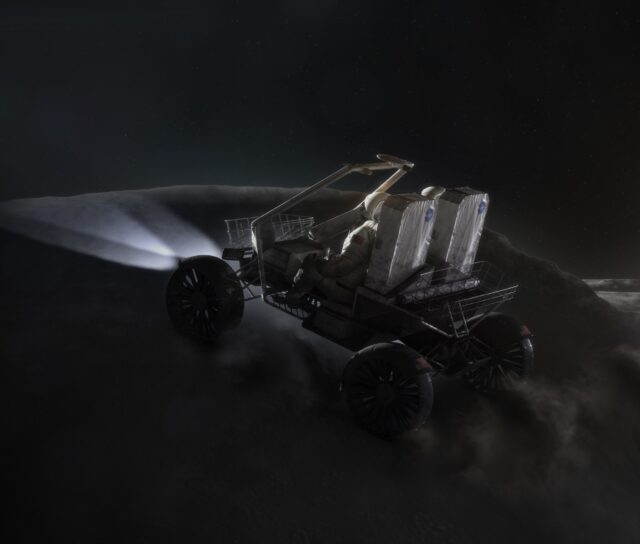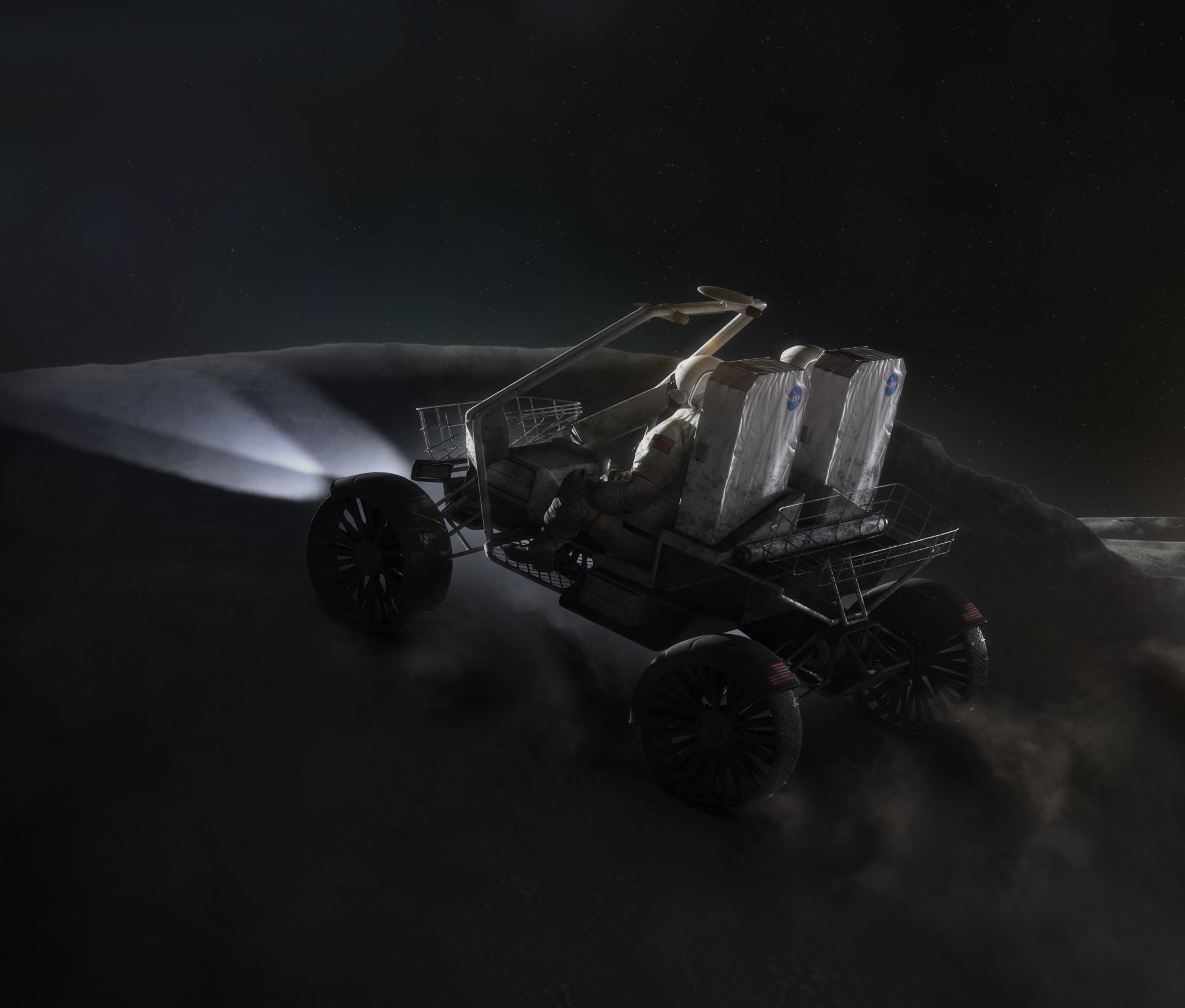

NASA will host a news conference to announce the company, or companies, selected to move forward in developing the LTV (Lunar Terrain Vehicle), which will help Artemis astronauts explore more of the Moon’s surface on future missions. The televised event will take place at 4 p.m. EDT (3 p.m. CDT), Wednesday, April 3, at the agency’s Johnson Space Center in Houston.
The news conference will air live on NASA+, NASA Television, the NASA app, and the agency’s website. Learn how to stream NASA TV through a variety of platforms including social media.
Event participants will include:
- Vanessa Wyche, director, NASA Johnson
- Jacob Bleacher, chief exploration scientist, NASA Headquarters
- Lara Kearney, manager, Extravehicular Activity and Human Surface Mobility Program, NASA Johnson
International media interested in participating in person must request credentials by 6 p.m. Thursday, March 21. U.S. media interested in attending in person must request credentials by 6 p.m. Wednesday, March 27. All media interested in participating by phone must request details by 2 p.m., April 3. To participate, contact the NASA Johnson newsroom at 281-483-5111 or [email protected]. NASA’s media accreditation policy is online.
Through Artemis, NASA will land the first woman, first person of color, and its first international partner astronaut on the surface of the Moon to explore for scientific discovery, economic benefits, and to build the foundation for crewed missions to Mars.
Learn more about NASA’s Artemis campaign at:
-end-
Kathryn Hambleton
Headquarters, Washington
202-358-1100
[email protected]
Victoria Ugalde / Nilufar Ramji
Johnson Space Center, Houston
281-483-5111
[email protected] / [email protected]








